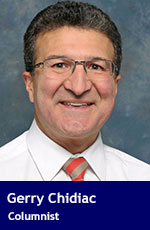 A very interesting video has gone viral that supposedly humiliates CNN reporter Don Lemon. Lemon is essentially a corporate mouthpiece, but this time he poses a legitimate question by asking a spokesperson for the British Crown about reparations for colonialism.
A very interesting video has gone viral that supposedly humiliates CNN reporter Don Lemon. Lemon is essentially a corporate mouthpiece, but this time he poses a legitimate question by asking a spokesperson for the British Crown about reparations for colonialism.
He queries why some people remain obscenely wealthy in Great Britain while the vast majority suffer financially.
Instead of answering his question, Hilary Fordwich launches into a lecture about the abolition movement in Great Britain and the British sailors who died during the Blockade of Africa in the first half of the 19th century, trying to prevent other nations from transporting enslaved human beings. She also points out that there were additional players in the Transatlantic Slave Trade, and if the British aristocracy is held accountable, these others should be as well.
All of this is true. I fail to understand, however, how it is a humiliation of Don Lemon.
| Watch the Don Lemon video |
 U.K Royal scholar gives CNN’s Don Lemon a history lesson U.K Royal scholar gives CNN’s Don Lemon a history lesson
|
| Related Stories |
| Elizabeth II had the poise to navigate the cesspool of colonialism
|
| It’s time to put the myth of ‘white privilege’ to bed
|
| We must accept the mistakes of the past and make them right |
To me, it was reminiscent of the monologue of the German lawyer in the classic film Judgment at Nuremberg. In it, he defends his clients, men accused of war crimes during the Nazi era, by asking, “What about the rest of the world?” He correctly states that populations worldwide embraced anti-Semitism, many people praised Hitler, and American industrialists even helped to build his empire. All of this is true, but it does not release his clients of their guilt.
Perhaps the issue is that we no longer understand the difference between accountability and blame shifting. If I did something wrong, it doesn’t matter what anyone else did; I am responsible for my own actions. There is also something deeply liberating in embracing the truth of our failures and making reparations.
I may seem overly critical of the British Crown, but that is because I am a member of the Commonwealth. If I am expected to promise allegiance to a king, it is my responsibility as a citizen to hold him (and myself) accountable to a code of ethics, including questioning whether the exploitation of other human beings generated his wealth.
In the same way, I feel morally obliged as a Canadian citizen to embrace the 94 Calls to Action of the Truth and Reconciliation Commission to heal the deep wounds inflicted on our country by what most scholars would now call the genocide of our Indigenous populations.
I may object to genocidal acts in other countries, and I can speak about them, but I cannot take action in the same way I can with my own government. My efforts to hold my state accountable, however, may inspire people in other countries to do the same.
Seeking and embracing truth is a noble quest. As a teacher, I always value the opinions and viewpoints of my students, and I welcome their sincere corrections. I hope that this makes for a pleasant and positive learning environment. I have the same desire when publishing my weekly Troy Media column.
Seeking truth is also not a competition. Hilary Fordwich was correct in stating that extraordinary people in Great Britain led the way in the global abolition of the Transatlantic Slave Trade. Don Lemon was right as well. Sincere and serious discussion of reparations by the Royal Family and the British aristocracy needs to be on the table.
Troy Media columnist Gerry Chidiac specializes in languages, genocide studies and works with at-risk students. He is the recipient of an award from the Vancouver Holocaust Education Centre for excellence in teaching about the Holocaust.
For interview requests, click here.
The opinions expressed by our columnists and contributors are theirs alone and do not inherently or expressly reflect the views of our publication.
© Troy Media
Troy Media is an editorial content provider to media outlets and its own hosted community news outlets across Canada.

Truth is complex and messy. It makes for poor tweets as, usually, the truth involves multiple parties, all of whom are both Saints, and Sinners. Truth requires us to acknowledge the virtues while calling out the wrongs done by all parties.
To quote the bible, “All have sinned and fallen short.” That fact should never be a reason not to strive to do better, and to seek the “Kingdom of Heaven”